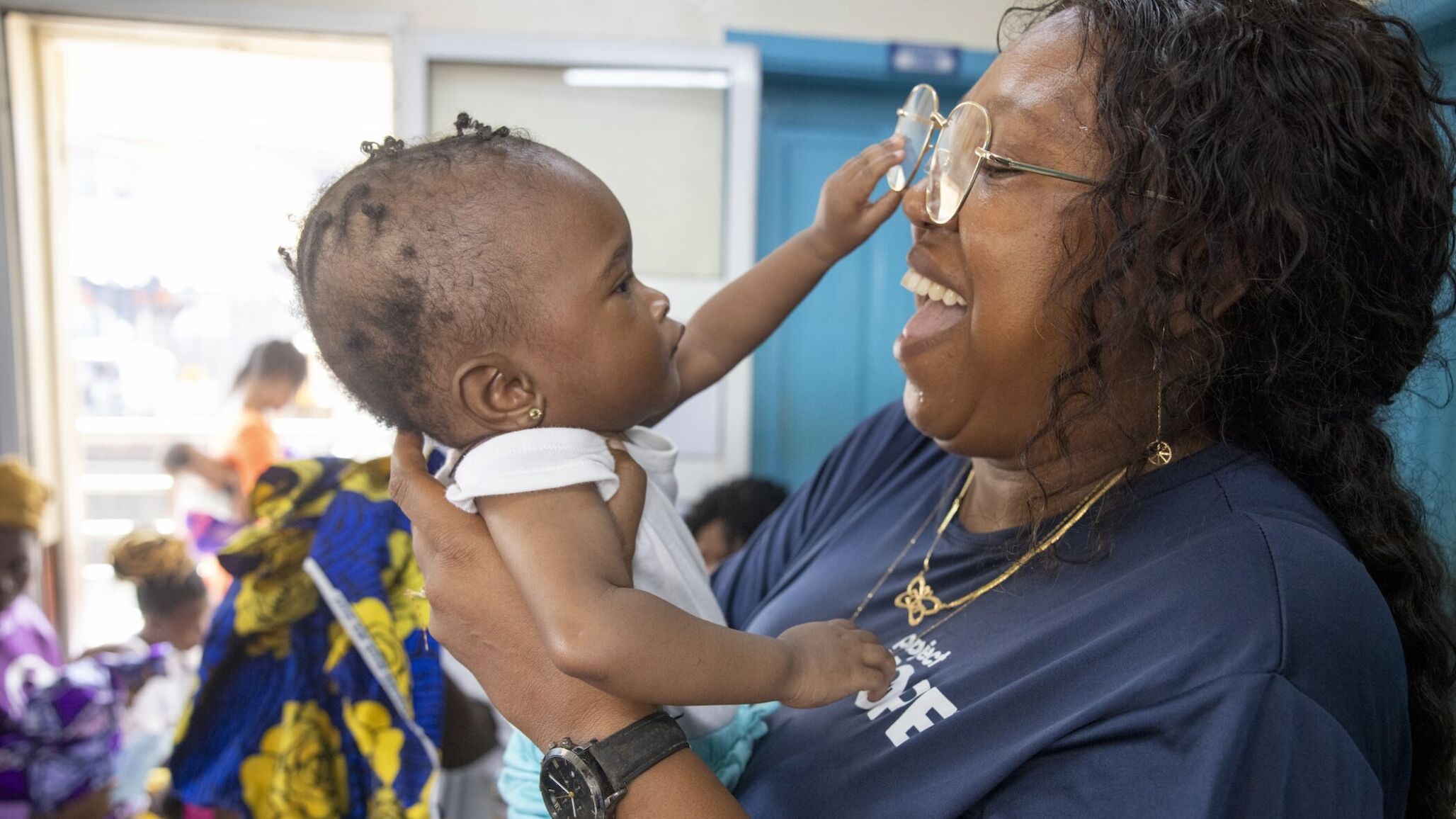Gaucher Initiative Saves Young Lives, Advances Treatment
Project HOPE and Sanofi Genzyme celebrate 20 years of the Gaucher Initiative — a partnership to provide quality treatment for young Gaucher patients in Egypt

This year, Project HOPE and Sanofi Genzyme are celebrating 20 years of working together to advance treatment and prevent the untimely death of people affected by Gaucher disease in Egypt.
A rare genetic disorder, Gaucher disease causes the buildup of fatty cells in the spleen and liver, which enlarges the organs and leads to a distended abdomen. Gaucher can also lead to stunted growth, intellectual disabilities, neurological complications, as well as bone and cardio-pulmonary complications depending on the type: Type 1 (the most common) is the least severe with fewer complications; type 2 is fatal, usually within the first two years of life; and type 3 is typically associated with neurological symptoms.
Most Gaucher patients are diagnosed as children: the disease occurs in up to one in 50,000 births in the general population, and afflicts more people in Egypt than any other country worldwide. But with proper care and lifesaving enzyme replacement therapy (ERT), many can resume normal and productive lives. Without care, the disease can be debilitating — and ultimately fatal. Most young Gaucher patients who don’t receive ERT will not survive into adulthood.
Unfortunately, there is often stigma associated with the disease as well. Barbara Smith, a program officer in Project HOPE’s Global Health department, says much of the stigma is self-inflicted.
“Anyone with a disease feels and/or is viewed as ‘different’ by those around them,” says Smith. “Gaucher patients are required to visit their health center every two weeks to receive ERT. Without ERT, in most cases, they will become very sick and more than likely will die. Because ERT is intravenous, many patients have a permanent vein port on their hand or wrist that is visible to others. People may perceive that they are ‘infectious’ when they see an IV port on their hand and thus treat them differently.”
Project HOPE, Sanofi Genzyme, the Egyptian Ministry of Health and the children’s hospitals are all working together to strengthen the system of care so patients can receive the highest level of treatment — raising awareness, improving diagnosis and developing specialized clinical expertise among local medical professionals to do so. More than 500 health care workers have received training since the start of the initiative.
“Most of the adult patients are going to university, getting married and having families of their own, getting jobs and contributing to the overall economy of the country.”
Barbara Smith, Project HOPE
More than 300 patients in Egypt have been enrolled over the course of the program, with approximately 130 undergoing active treatment at seven university children’s hospitals across the country. None of these patients had access to treatment prior to enrollment in the program. Sanofi Genzyme provides donations of ERT, along with resources to help oversee and improve the quality of treatment for patients enrolled in the program.
More than two-thirds of program patients have Gaucher type 3. According to the National Gaucher Foundation, the life expectancy of a person with type 3 without treatment is significantly shorter. Even with treatment, life expectancy is 50 years. Through the provision of essential medicines, health care worker education and family support, the Gaucher Initiative has helped usher in substantial improvements in the treatment of patients with Gaucher disease, so that many can now live full, productive lives.
Smith is pleased to see so many patients reaching adulthood, and hopes that, because of this success, we will soon expand the program to offer services that meet the needs of these patients as adults, such as hosting social gatherings. Social gatherings would provide an opportunity for patients to share experiences with one another and know there are others like themselves, who understand what it’s like to live with Gaucher disease.
“There are 54 patients in the program who are now adults and 26 more who are 15- to 17-years-old,” says Smith. “Most of the adult patients are going to university, getting married and having families of their own, getting jobs and contributing to the overall economy of the country.”
Project HOPE has worked in Egypt for over 40 years, helping to modernize the health education system and strength the capacity of health care providers to care for a rapidly increasing population. The Gaucher program has been a crucial component to this work, and will continue to be a focal initiative as we remain committed to our efforts to support the health system.



